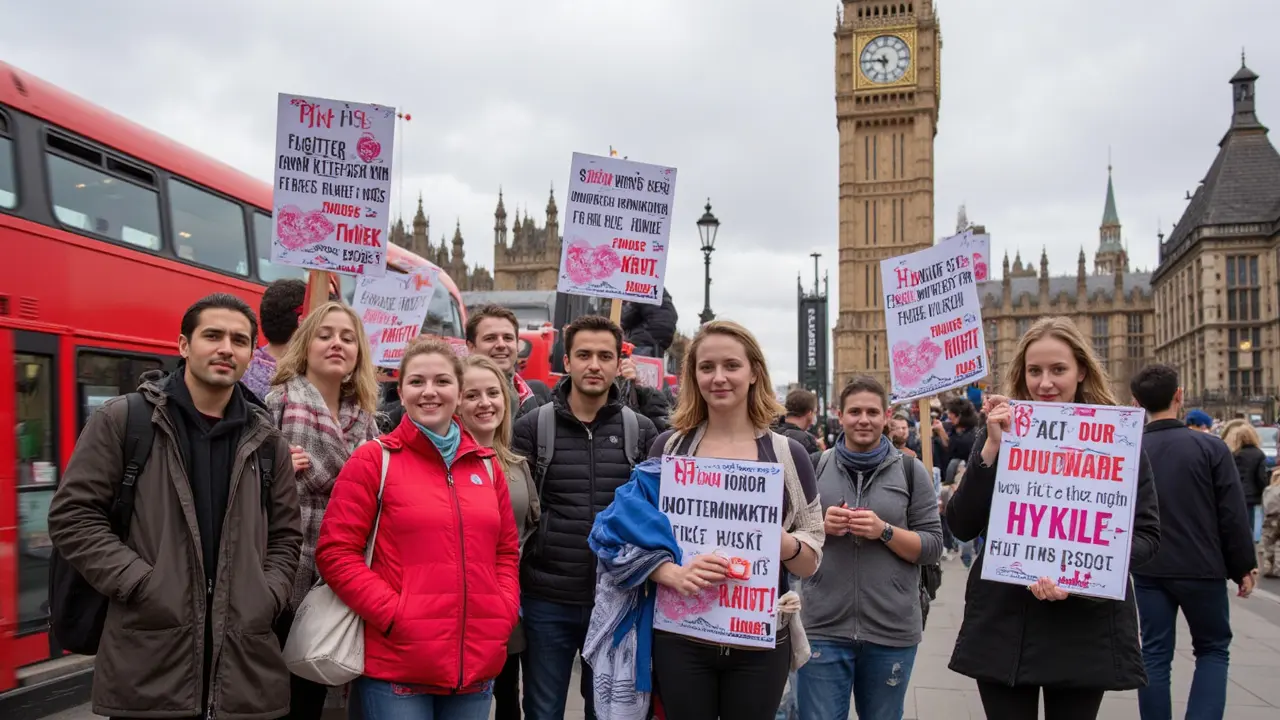Did you know that in New Zealand, street-based sex work is legal, while in the US, it can land you in jail? Sex worker rights might sound like a niche topic to some, but it’s a frontline issue for millions worldwide. From government crackdowns to community-led reform, sex work sits at the crossroads of human rights, feminism, capitalism, and good old-fashioned hypocrisy. Why do some countries treat sex workers like entrepreneurs, while others see them as criminals? And what does all this mean for workers themselves, not just the lawmakers and lobbyists hogging the headlines?
How Sex Work Laws Differ Across Continents
Sex work laws can flip your assumptions upside down. In Europe, for instance, there’s a wild patchwork: Germany legalises brothels, offering health insurance and pension plans for workers, while Sweden criminalises not the worker, but the client—a strategy dubbed the “Nordic Model.” The UK stands out because selling sex itself isn’t illegal, but just about everything surrounding it—soliciting in public, running a brothel, pimping—remains an offence. Imagine trying to do your job when just renting a flat with a friend could get you in trouble.
Heading further afield, New Zealand overhauled everything in 2003, decriminalising sex work and setting a gold standard in rights and safety. The official stats in their government’s 2022 review showed a 99% compliance rate for health checks in registered brothels, and police-reported violence against sex workers dropped by almost half since 2005. In striking contrast, the US mostly bans prostitution outright, with only a few counties in Nevada allowing licensed brothels. Arrest data from the FBI shows 19,600 people were arrested for prostitution-related offences in 2023, 90% of them women.
Across parts of Asia, Africa, and Latin America, things get even more complex. Thailand’s nightlife pulses openly, yet sex work is still illegal—meaning workers have minimal protection from police abuses. In India, the act of selling sex is legal, but everything around it—running a brothel, living off earnings—can get you in hot water. Africa has its extremes: Senegal regulates brothels to monitor health, while in Uganda, sex workers face constant harassment, police raids, and worse.
Let’s show the global legal landscape at a glance:
| Country | Legal Status | Key Features |
|---|---|---|
| New Zealand | Legal/Decriminalised | Brothels regulated, strong worker protections, health services |
| Germany | Legal | Pension plans, health checks mandatory, taxes paid |
| Sweden | Illegal to Buy, Legal to Sell | "Nordic Model", buyers prosecuted, workers not |
| USA | Illegal (except in parts of Nevada) | Harsh penalties, frequent police stings |
| Thailand | Illegal | Widespread in practice, police corruption, little protection |
| Senegal | Legal/Regulated | Mandatory health checks, registration, state brothels |
The Real Lives Behind the Headlines
Law books don’t show you what a day in the life actually looks like. The legal status shapes everything, from workplace safety to public stigma. For example, in Amsterdam’s Red Light District, workers swipe badges and pay taxes; the government treats it as any other service job. One worker, quoted in a 2024 Dutch press feature, said, “I feel safer behind glass here than I did waitressing back home.”
But reality often isn’t so glossy. Even in places with legal recognition, many workers face housing discrimination and bank account closures—just for admitting their work. LGBTQ+ sex workers and migrants often slip through the cracks of protections, left relying on tightly-knit support communities instead of the law. There are stories out of New South Wales, Australia—where sex work was decriminalised in 1995—of former workers retraining as social workers or accountants, something almost unthinkable in places where a criminal record for soliciting bars you from future jobs. Meanwhile, in criminalised zones, many workers feel forced to stay underground, which only spikes the risk of violence and exploitation. Trust in the police drops through the floor.
Poverty and lack of other options push many into the industry, but it’s not the whole story. A 2023 international survey published by Rights4SexWorkers showed that in Berlin, 67% of respondents chose sex work over other jobs because of the flexible schedule and higher pay. What nearly all said, though, was that social judgment was harder to bear than the actual work. Where the law is hostile, the shame and danger skyrocket.
If you’re in a country with strict laws, safety tips get traded more quietly: Have a check-in buddy. Use code words with friends. Never meet clients in hotels without proper ID checks. In more open societies, support networks, health clinics, and even self-defence workshops are available. The biggest constant everywhere? Sex workers are the experts on their own lives. When they lead the conversation, things tend to improve.

Legal Battles, Politics, and Social Movements
If you think sex worker rights are just about risqué stories, look again. The fight has moved onto the streets, into parliament, and onto your phone screen. Since the late 2010s, activists have ramped up campaigns for decriminalisation, arguing that treating sex work like any other job reduces violence and helps root out trafficking. Amnesties International’s 2025 policy brief called the criminalisation of sex workers “a dangerous distraction from real anti-trafficking work.” Even United Nations agencies have joined the push for better legal frameworks, stating in 2024 that “removing punitive laws is a cornerstone of effective public health.”
When laws shift, political debates spark up instantly. In France, the introduction of the “purchase ban” in 2016—making it illegal to buy sex—triggered mass protests from workers. French government stats from 2023 show police harassment against workers actually increased post-ban, while exploitation by pimps remains steady. In the US, the FOSTA-SESTA legislation of 2018 wiped hundreds of advertising platforms off the web, forcing thousands of workers offline and into unsafe situations just to find clients. A Columbia University study in 2022 showed violence against street-based workers in selected US cities climbed by 17% after the law passed.
Grassroots groups—often led by workers themselves—are tearing down old stereotypes and building alliances. Think New Zealand’s NZPC, Berlin’s Hydra, or London’s SWARM. These folks are running everything from harm reduction workshops to digital safety courses. Even TikTok and Instagram have become battlegrounds, with hashtags like #decrimnow and #letusspeak pushing debates into the mainstream. Not every government listens, but every protest chips away at stigma.
The Economic Side: Money, Tax, and Health
If you ever thought legalising or criminalising sex work was just a moral issue, look at the numbers. Legal sex work creates revenue for governments, steadies local economies, and—no small thing—gets people paying taxes. Germany collected an estimated €350 million in sex-industry tax in 2023 alone. New Zealand’s sex worker union reports an 89% uptake in voluntary tax payment since 2005, mostly due to less fear of being outed or punished. Compare that to the shadow economy in the UK, where the government can only guess at turnover—but estimates from the Office for National Statistics put it at over £1 billion in 2024.
Money doesn’t solve everything, though. In places where the business is illegal, workers rarely save for retirement, and “business expenses” aren’t deductible. Without stable legal standing, many can’t get business loans or open regular bank accounts. Worse, lack of legal clarity means health care slips through the cracks, too. Sex workers are statistically at higher risk of sexually transmitted infections; in criminalised environments, many avoid seeking treatment altogether. An interesting fact: Senegal, which regulates sex work, has seen HIV rates among registered workers drop to under 2%, compared to 7-8% in neighbouring countries with harsher laws.
The best-run models pair decriminalisation with practical support—easy access to clinics, testing, and financial advice. These basics do more to boost public health and welfare than any crackdown. Countries that get that balance right report lower crime, healthier workers, and—yes—less trafficking, because illegal operators have less space to hide.

What’s Next for Sex Worker Rights?
2025 isn’t a revolution, but it’s not more of the same either. Public attitudes are shifting, especially among younger generations. Pew Research’s global survey in April 2025 found support for decriminalising sex work hit 62% among Europeans aged 18-34, and 48% in the US. More people are realising that protection and support help more than punishment and stigma ever did.
But not everything’s trending up. In some parts of Eastern Europe and Africa, moral panic is making a comeback. Crackdowns are spreading in Poland and Hungary, with harsh new penalties. Meanwhile, technology is changing the game: platforms like OnlyFans and Fansly have blurred the lines between digital sex work and old-school in-person work, which is making lawmakers scramble to keep up.
For allies or anyone who wants to help, here are a few concrete tips:
- Listen to what sex workers and their groups say—they know what works.
- If you vote, look at candidates’ records on harm reduction and decriminalisation.
- Challenge media stereotypes when you see them. Share accurate stories.
- Support safe online platforms that let workers vet clients and set boundaries.
- Donate to grassroots organisations leading the fight for worker safety.
The real key is asking who the law protects—and who it leaves out. The answers are usually messier than they first seem. Wherever things go next, the sex worker rights movement is rewriting rules and proving that solidarity and stubborn honesty go further than tired old laws.







